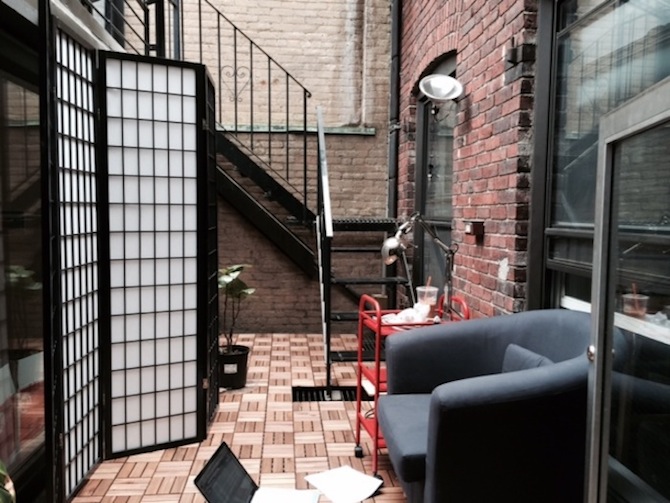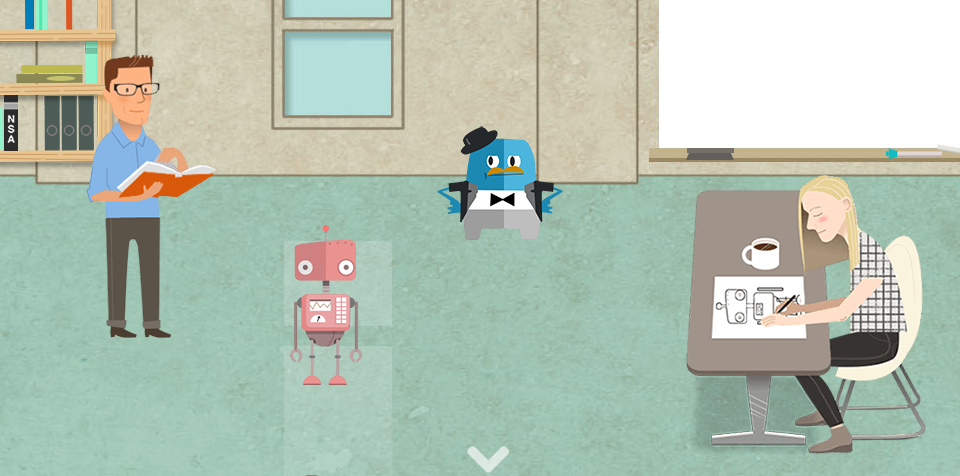Lining the Southern end of the Boston Common, amidst the cluster of Emerson College buildings along Boylston Street, is perhaps Boston’s best kept secret for urban involvement. The unsuspecting building at 160 Boylston is overshadowed by the vintage Steinway & Sons piano shop next door, giving it the appearance of just another seedy storefront. But up on the fourth floor is a lab decked out with ideas scribbled on the walls, LEGOs sprawled throughout the entrance way by the elevator and a 3D printer sitting ready to churn out the next product.
The Emerson Engagement Lab is dedicated to increasing the civic engagement of a city’s residents through a lineup of original games designed in-house. The fourth floor workshop is perfect for the multifaceted initiatives it is tinkering with with, like new games, community research, classes, studying and serious brainstorming. There are multiple Apple computers, a massive television hanging from the wall, a small work space with an open skylight and even an old-fashioned yet still working arcade game in the corner, sure to inspire the latest the Engagement Lab’s latest product.
The premise of the Engagement Lab is simple. They ask themselves on a daily basis how they can increase civic engagement and awareness at the intersection of gaming, technology and new media.

Already they’ve created a number of games dedicated to upping public participation in various cities to combat a number of issues plaguing them, like creating ways to bolster flood prevention methods in impoverished areas, for example. Some of those are already taking hold in larger metro areas like Boston, while others have already been successfully implemented in overseas countries like Zambia and Moldova.
BostInno was lucky enough to catch up with Christina Wilson, project manager, and Rob McKenzie, lab coordinator, who gave us a tour of the lab and filled us in on some of the items they’re currently working on. As it turns out, many of the Engagement Lab’s projects fall directly in line with the neighborhood initiatives being ramped up by Mayor Marty Walsh’s administration. Even better, the lab is growing.
“We’re growing from like two or three at this time last year to a little bit more than that,” mentioned McKenzie. The lab itself is staffed by Emerson College faculty, full-time writers and developers and undergraduate students.
To get a better idea of what the Engagement Lab is going for, let’s consider its latest game. Aptly dubbed Community PlanIt, the game is actually a series of questions posed to a user. Upon completing a question, or a challenge, the user is awarded with digital coins that can be used for local causes. The entire game is comprised of a slew of these “missions,” and subsequently yields real-world results.
Every answered question and completed game essentially acts as a scenario for how city officials and the public can work in tandem for the betterment of their community. Think of it as a way to crowdsource urban ideas while giving users access to a social media-like platform so they can engage with folks in the neighborhood and around the world.
For example, in 2012 Boston Public Schools used Community PlanIt to solicit ideas on how to judge what school quality looks like in the BPS system. Using 451 players – students, teachers and others – three different languages and generating 6,400 comments, BPS was able to consider methods outside the traditional way of thinking.
What’s great about Community PlanIt is its dexterity. The platform can be tailored to a specific issue in a specific city and still render thoughtful, impactful ideas.
Wilson and McKenzie liken the general theme of their games to the City of Boston’s wunderkind mobile app Citizen’s Connect – only they and their constituents in the lab take it one step further. Citizen’s Connect allows residents to directly notify city officials of any civic problems such as potholes, graffiti or busted lampposts. The officials then receive the notice and take care of the issue.
The games created in the lab give voice to the public in terms of problem solving, not just notifications. They allow for residents to tangibly become a part of the solution.
With just under six months on the job, Mayor Walsh has already called upon the New Urban Mechanics to experiment on solutions for a number of citywide concerns that range from the lacking aesthetics of Boston public spaces to donating personal data for collective benefit to crowdsourcing ideas to fill vacant retail windows. The kind of municipal adversity the Engagement Lab is battling is strikingly similar, only their solutions resound more heartily amongst the younger generation.
Wilson told BostInno that the Engagement Lab would be rolling out at least two more games this year, one during the summer and another later in the fall, so stay tuned to BostInno for more updates.

